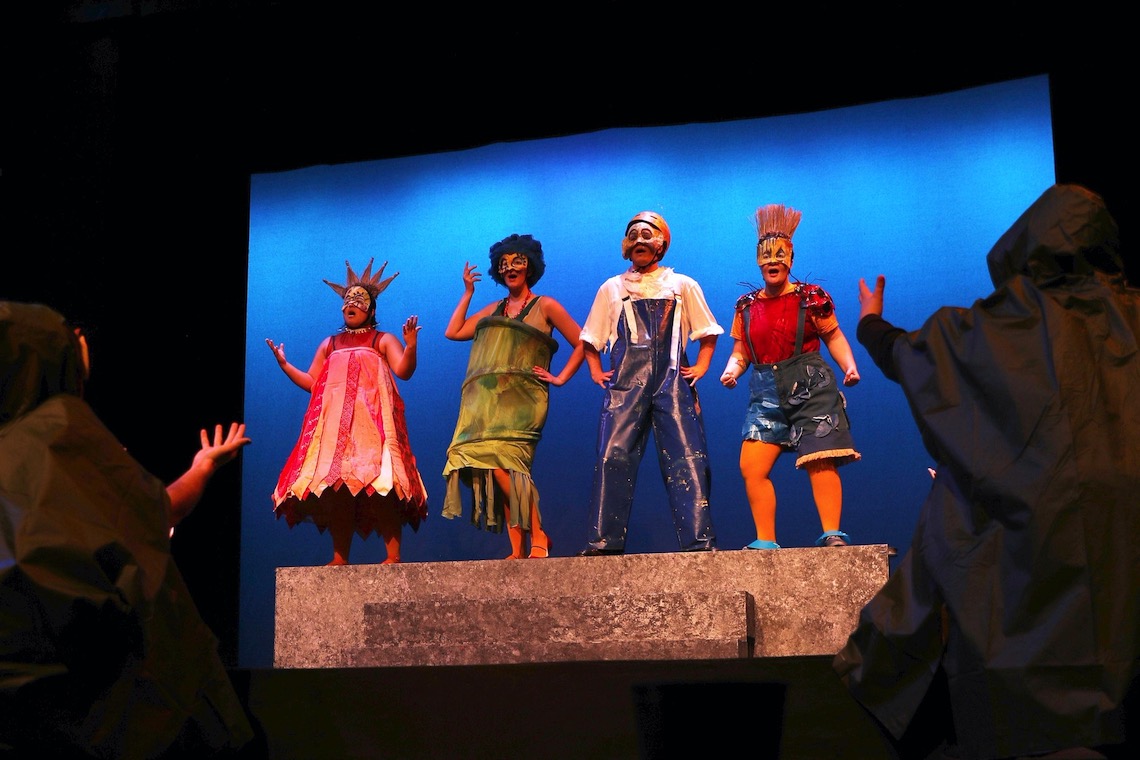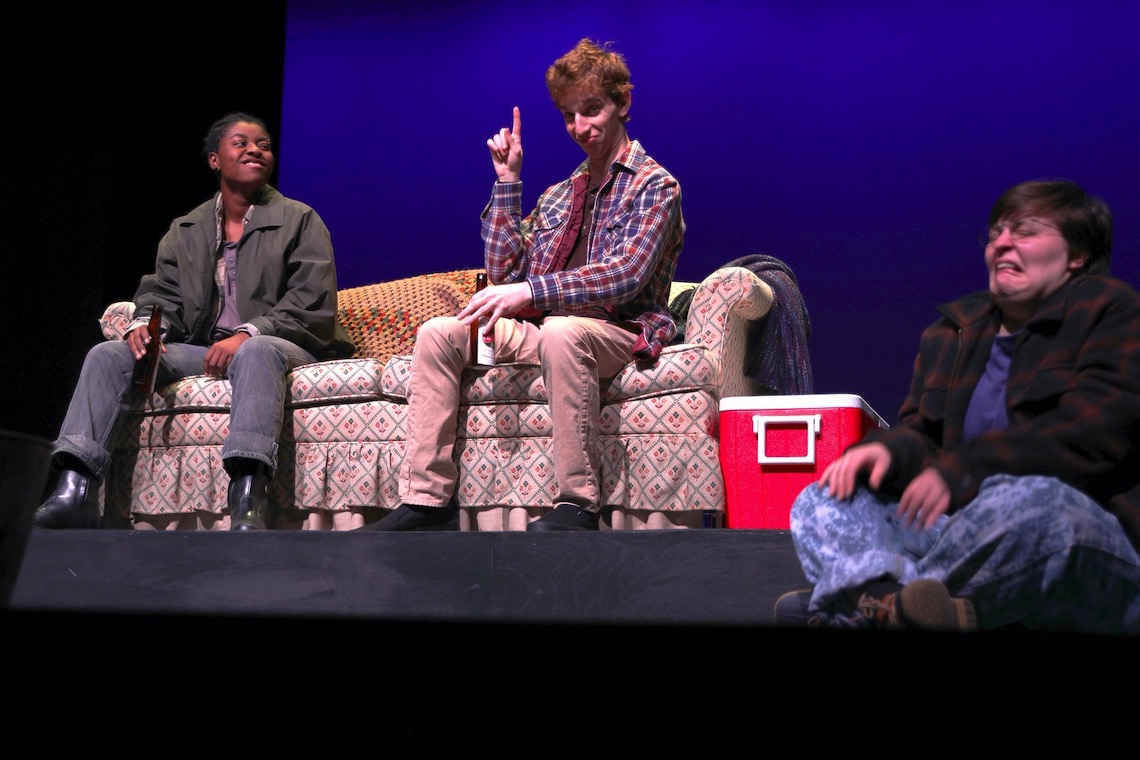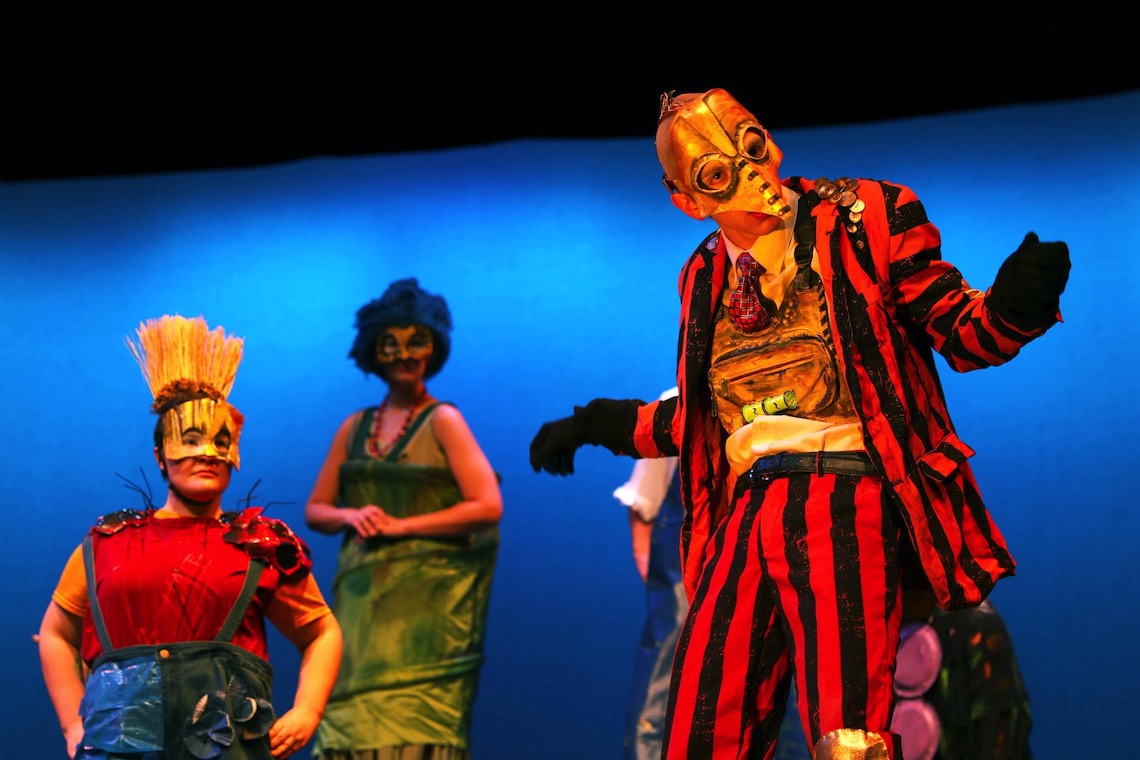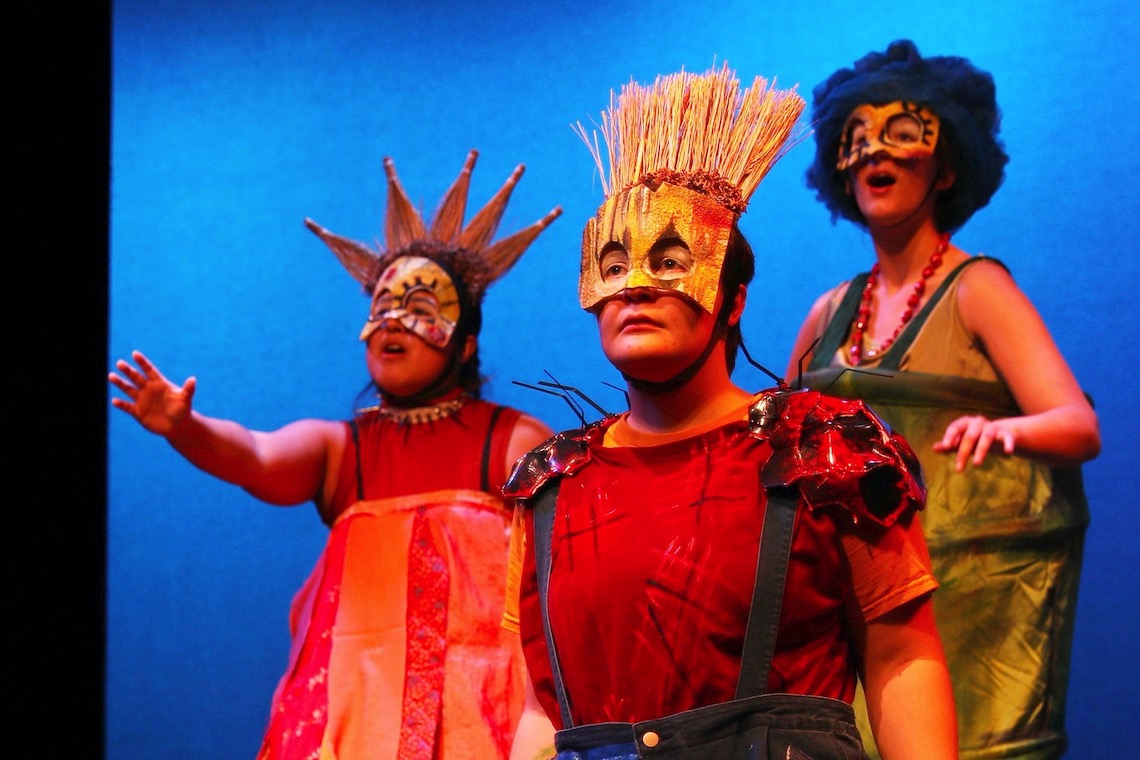This is the way the world ends, not with a bang but a “D’OH!” That reworked line of poetry with the combined voices of T.S. Eliot and Homer Simpson might as well be the tagline to the latest play staged by the University of Southern Maine’s Theatre Department.
“Mr. Burns, A Post-Electric Play” premiered on Saturday, November 12, in the theatre at Russell Hall on the Gorham Campus.

The first scene depicts society in shambles after a nuclear catastrophe. The shockwaves that decimated the population also wiped out most art and culture, with the notable exception of the animated family sitcom “The Simpsons.” Survivors quote episodes from memory until the series achieves almost religious significance in their rebuilt civilization. The cast is proof, however, that you don’t need to be steeped in “Simpsons” lore to enjoy the play.
“I hate ‘The Simpsons,’” said Ciara Neidlinger. “I don’t do well with adult animated television. I much prefer real people.”
Neidlinger is a senior Theatre major. Like all of her castmates, she hadn’t been born yet when “The Simpsons” first lit up TV screens in 1989. After 34 years and 735 episodes, it’s still on the air. That longevity has made characters like Homer, Marge, Bart, and Lisa into cultural icons, even though the series isn’t the rating juggernaut that it once was.
As preparation to play “Simpsons” super-fans, cast members watched key episodes of the series. Next up on their watch list was a mini-series dramatizing the Chernobyl nuclear disaster in order to learn about the physical effects of radiation exposure. Their research also included a night of telling stories to each other around a campfire to find a realistic cadence for their line readings.

The actors had the added challenge of conveying emotion from behind a mask. By the final act, society has evolved into a violent form of Simpsons cosplay. Senior Theatre major Noam Osher plays Mr. Burns. He’s the closest thing to a villain on the cartoon as Homer’s crotchety boss. Osher amps up the fear factor by wearing a pointed mask that makes him look like a medieval plague doctor.
“I just lean into the weirdness and the creepiness as much as I can,” Osher said. “As soon as I scrunch my shoulders up and get into that position, I’m in it, I’m there.”
“My mask is very asymmetrical and jagged,” said Neidlinger of her Bart costume. “To me, that means a mountain, so that translates to strength. That’s a longwinded way of saying I’m playing a boy that is finding his strength when his family is gone.”

“The Simpsons” as seen on stage is a stand-in for every pop culture phenomenon from Star Wars to Harry Potter to the MCU. The play pokes fun at the way fans obsess over them, while also recognizing how such entertainment fills a basic need to make sense of reality through fantasy.
“This play is about storytelling as much as anything,” said director Stephen Legawiec. “It examines why we tell stories, and why we NEED to tell stories, and what about telling stories makes us particularly human.”
Although neither Neidlinger nor Osher are big “Simpsons” fans, they’ve got their own guilty pop culture pleasures. Osher picked “Arrested Development” as the best TV show to help society recover from near destruction.

“For me, it’s ‘Gilmore Girls,’” Neidlinger said. “It didn’t age perfectly, but I love it SO much.”
At least for another week, the future still belongs to the Simpsons at Russell Hall. “Mr. Burns, A Post-Electric Play” returns to the stage for a second round of performances November 17-20. Tickets are now on sale.

